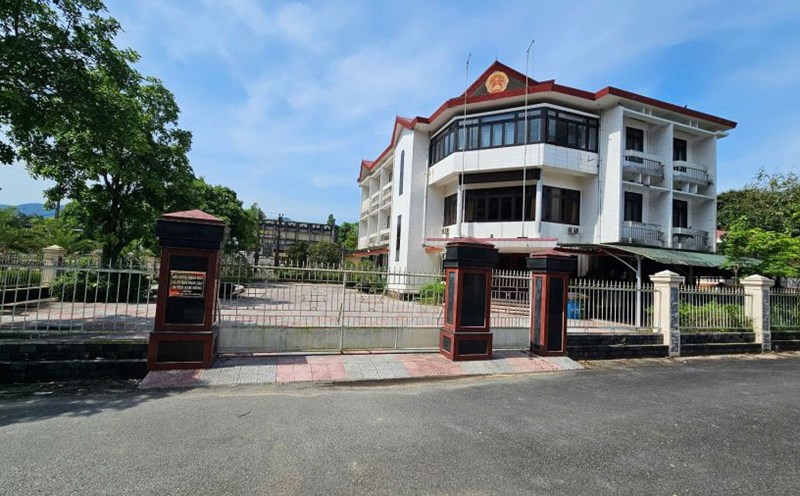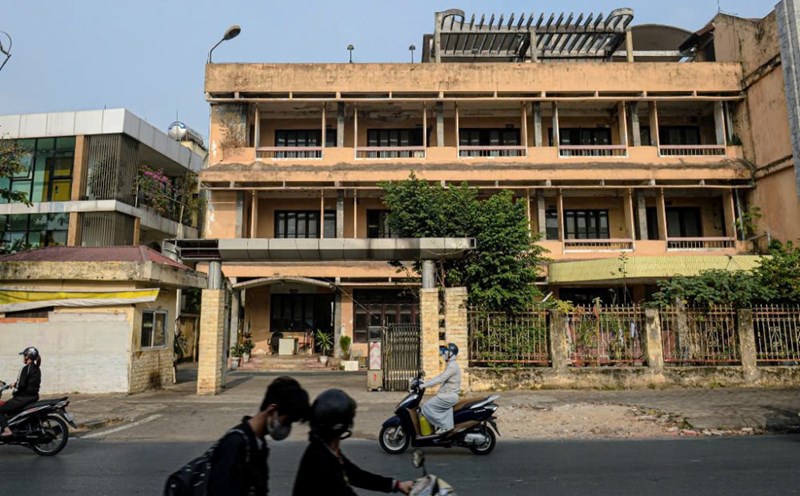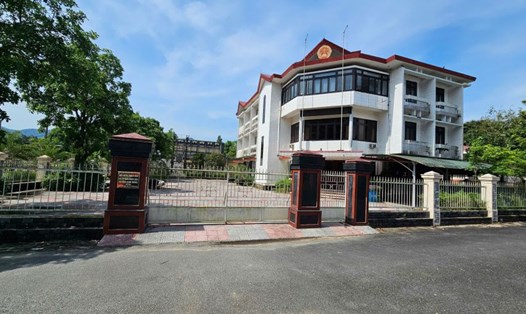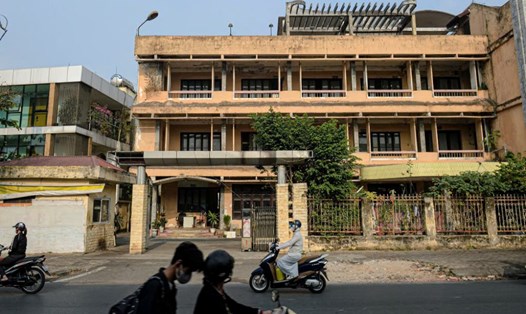The bond of mechanisms, planning and the people's hearts
In Thanh Hoa province, where more than 500 public offices and real estate were recorded as vacant in the period of 2019 - 2021, the problem of handling surplus public assets has been proposed many years ago. However, up to now, the results are still very limited.
According to the Finance - Planning Department of Thanh Hoa City People's Committee, by the end of 2024, the whole city still has more than 90 unused public real estate facilities. Of which, there are 5 facilities located in the suspended projects area, 22 facilities are waiting for handover, 24 facilities have approved the sale plan but have not been able to sell, the remaining 40 facilities are stuck in adjusting the construction planning.
"There are problems wherever they hit", that is the sharing of a city-level public asset manager. In some places, the origin of land use cannot be determined because the history is too old; in some places, people have donated land, contributed money to build but now they demand land return or compensation for property.
"We have developed a plan to auction some old cultural houses, but people have come to protest and demand to keep them as community activity places because they have previously donated land and contributed to the construction. If not satisfactory, there will be long-term complaints," he said.
The lack of legal clarity, combined with the lack of detailed instructions from the Central Government on specific cases, has caused many public offices to "wait" - whether the locality wants to sell, convert or rent.
In Hue City, the situation of "burying" public offices on prime lands is not much better. Many establishments located along the Huong River - where there are plans for tourism and trade - have not been able to be auctioned because the demolition procedures have not been completed, the remaining assets have not been valued, or the site has not been cleaned.
Mr. Tran Huu Thuy Giang - Chief of Office of Hue City People's Committee - said that the city is studying the demolition of a number of works that are not in accordance with the planning to create a clean land fund, thereby including it in the overall auction plan with a reasonable valuation of the remaining assets. The goal is for investors to be able to calculate costs, avoiding the fear of having to pay a large land rent for a 50-year use period at once.
"We have noted that some investors have expressed their interest after the city committed to removing barriers and creating clean land. However, to implement quickly, drastic coordination between departments, branches and the consensus of the people is needed, Mr. Giang emphasized.
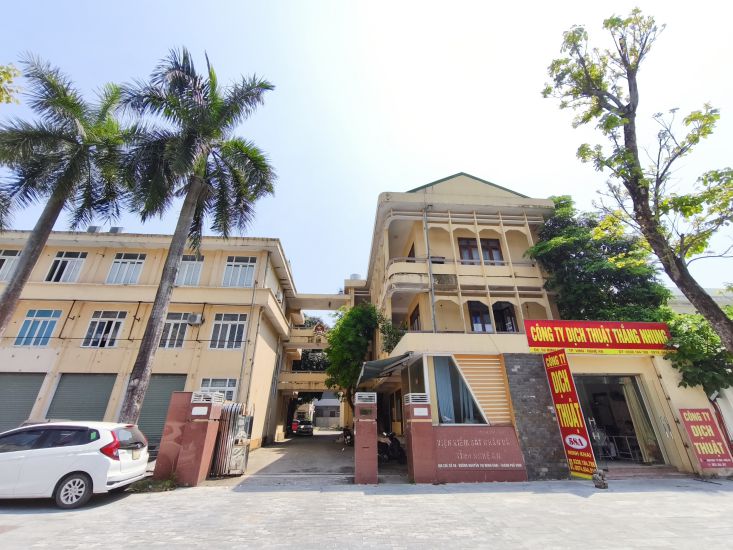
No red book, cannot be processed
In Quang Tri - the province is entering the process of preparing to merge with Quang Binh - the problem of surplus public offices becomes even more urgent.
According to statistics, the whole province currently has 2,615 houses and land of public property. Of which, up to 702 facilities (equivalent to nearly 27%) have not been granted Land Use Rights Certificates. In particular, the public service unit sector currently has 62 vacant headquarters, no longer in need of use.
Localities such as Trieu Phong, Gio Linh, Cam Lo, Dakrong all have more than 10 abandoned headquarters. A representative of the provincial Department of Finance informed that the lack of red books leads to difficulties in public auctions, transfer of land use rights or even lease.
"It is impossible to set a price, cannot issue a new construction permit, cannot call for investment... if the land does not have legal documents," an official frankly said.
Although the People's Committee of Quang Tri province issued Decision No. 2822/QD-UBND dated November 21, 2024, approving the plan to handle 70 surplus headquarters in the direction of selling assets and transferring land use rights, it has not yet implemented an auction due to problems in adjusting land use planning.
According to the roadmap, the province has handled 2,229 facilities - reaching a rate of 95.17%. Most of them are for retention, transfer to other units or temporary detention. However, the most difficult part is still the remaining few - where the legal system is confusing, planning overlaps or is related to community disputes.
The project to reorganize Quang Binh and Quang Tri provinces into a new province clearly states that after the merger, the whole province will have 810 working headquarters. Of these, it is expected that only 729 headquarters will be in use; the remaining 79 headquarters will be redundant.
It is expected that the review of standards and norms for the use of public assets will be conducted synchronously with the construction of a new organizational structure. For surplus headquarters, the new province will flexibly apply the following forms: Changing functions, reclaiming lease, or handing over to organizations with exploitation functions.
In particular, with headquarters located in the center of Hue city or tourism development areas, the province will promote investment calling in the form of clean land auctions - after completing technical infrastructure and legal settlement.
According to regulations, the province only has 5 years from the date of completion of administrative reorganization to handle all surplus public assets. However, if not drastic, the problem of waste will continue to persist like a vicious cycle - where the budget is gradually depleted, while hundreds of houses are still closed.
Although localities have made efforts to handle surplus public assets, to completely resolve hundreds of abandoned headquarters, a strong mechanism from the Central Government is needed: amending the law, unifying regulations, clearly decentralizing power and encouraging effective reuse. If these "stains" are not removed, they will continue to damage the face of urban areas and erode trust in the ability to manage and use public assets.

